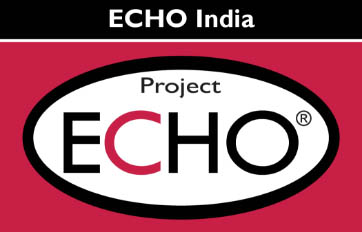Access to free education is a fundamental right of every child in our country. Over the past few decades, India has made great strides to improve school education. However the quality of education is still a point of concern—and the COVID pandemic has only widened this gap. While the education community at the Centre and the State level has helped children stay connected with learning despite COVID restrictions, issues such as connectivity and upskilling the teachers are still being faced.
SSA programme partnership with ECHO India
The National Education Policy (NEP) 2020 acknowledges the need for capacity building of teachers. Assam has begun the implementation of the NEP 2020 and for the professional development of the school leaders and teachers, Samagra Shiksha Assam, in collaboration with ECHO India, plans to cover 1000 schools. The pilot ECHO programme on school leadership, that started in 2021 helped more than 60 school leaders from 33 districts to foster transformational leaders who can meet the challenges of the 21st century through experiential learning. The programme covered leadership domains such as creating a school vision, improving school culture, engaging families and communities, etc. The interaction and the problem cases presented by the participants on various issues help in driving solution-based learning in the sessions on issues like student engagement and community collaboration.
Kalyan Chakravarthy, Principal Secretary, Assam Education Department learnt about the ECHO model and found it useful for capacity building of the school leaders and teachers. He envisaged the ECHO model helping create Professional Learning Communities where teachers and school leaders from exemplary schools across the State, can share and disseminate knowledge and best practices which are essential in building leadership values, skills, attitudes and actionable pathways.
I am impressed with ECHO's commitment to social responsibility in this most vital field of education. With the vision outlined in the NEP 2020, the need for educators to be dynamic, future ready, digitally enabled, empathetic and at the cutting edge is essential and I do hope that it is these types of relationships, where we work with commitment and without commercial interests which will lay the foundations, for a rightful future of Assam, in regaining its place in the upper knowledge echelons of this nation. The dream of the honourable CM of Assam will be fructified by such endeavours, and we shall not leave any stone unturned in this symbiotic synergistic journey together.
The ECHO Model
ECHO is an innovative capacity building model for professionals, which uses a "Hub and Spoke" structure. Multidisciplinary teams of experts based at regional academic and other research centres (the "hub") use videoconferencing technology to engage with learners (the "spokes") working across geographies.
The ECHO model allows all user-participants to contribute their knowledge and experiences through group discussions, case-based learning, peer interaction and engagement of local expertise. Through ECHO, participants become part of a virtual Professional Learning community that provides support, guidance, and feedback on an ongoing basis.
ECHO programmes decentralize knowledge, moving it from experts at academic centres, out to providers on the front lines.
It is a proven low dose, high-frequency education and guided practice model that is cost-effective, time-efficient and scalable across states, countries, regions, and globally while retaining local ownership.
Four key components of the ECHO model
Using technology like multipoint video conferencing to efficiently share knowledge and support many front-line medical and lay providers simultaneously.
Disseminating best practices to reduce disparities.
Using case based learning, so that participants receive guided practice and support from a multidisciplinary expert team, and can better master complex issues; and robust data collection with monitoring of projects.
Support from Education Department of Assam
Shyamalima Bora, school leader from Jorhat who was a part of the first Assam ECHO on school leadership found the cases and recommendations from experts 'very helpful and practical as they can be applied to everyday life.'
Lutfur Rahman, who also participated in the programme says, "The sessions have been extremely informative. Earlier, I used to think that school vision and mission are both the same. But now we are clear on how to frame the school vision and how to work on it through a well-planned mission. Sessions on community engagement helped me with ideas to address the communication gap with the community members."
Road ahead
The state has decided to begin with two focus areas — school leadership and foundational learning. NEP has also highlighted the need to improve skills of both school leaders (leadership, management and content and pedagogy for the school leaders) and primary school teachers, with a renewed emphasis on foundational literacy and numeracy.
According to Anuradha Rai, Lead, ECHO Education Initiative, "Mentorship is a key component of professional growth. Leveraging adult learning techniques and interactive video technology, telementoring through ECHO has the power to provide equitable access to guided practice from experts and best practices being employed at centres of excellence across the nation.'
The new ECHO programmes for the 1000 state schools in the two areas are slated to start soon.
In future, other focus areas — numeracy, digital enablement, math and science education, and environment education will also be covered.'"
It is commendable to note that the Assam Education Department, realizing the importance of empowering teachers and school leaders for fulfilling the educational needs of children, has shown keen interest in innovative training models like ECHO. This envisions creation of a strong community of educators who would lead the transformation of the education system in the State in the coming few years, ensuring quality education for all and a bright future of the State and the country.
